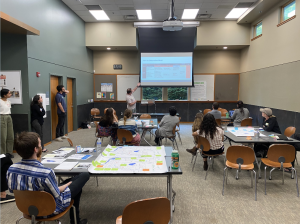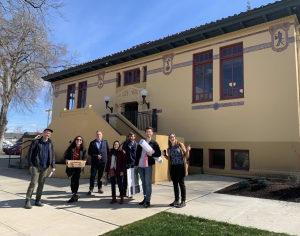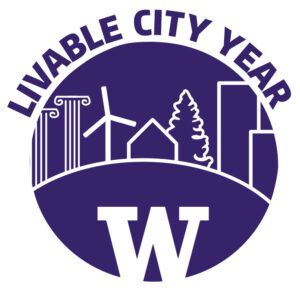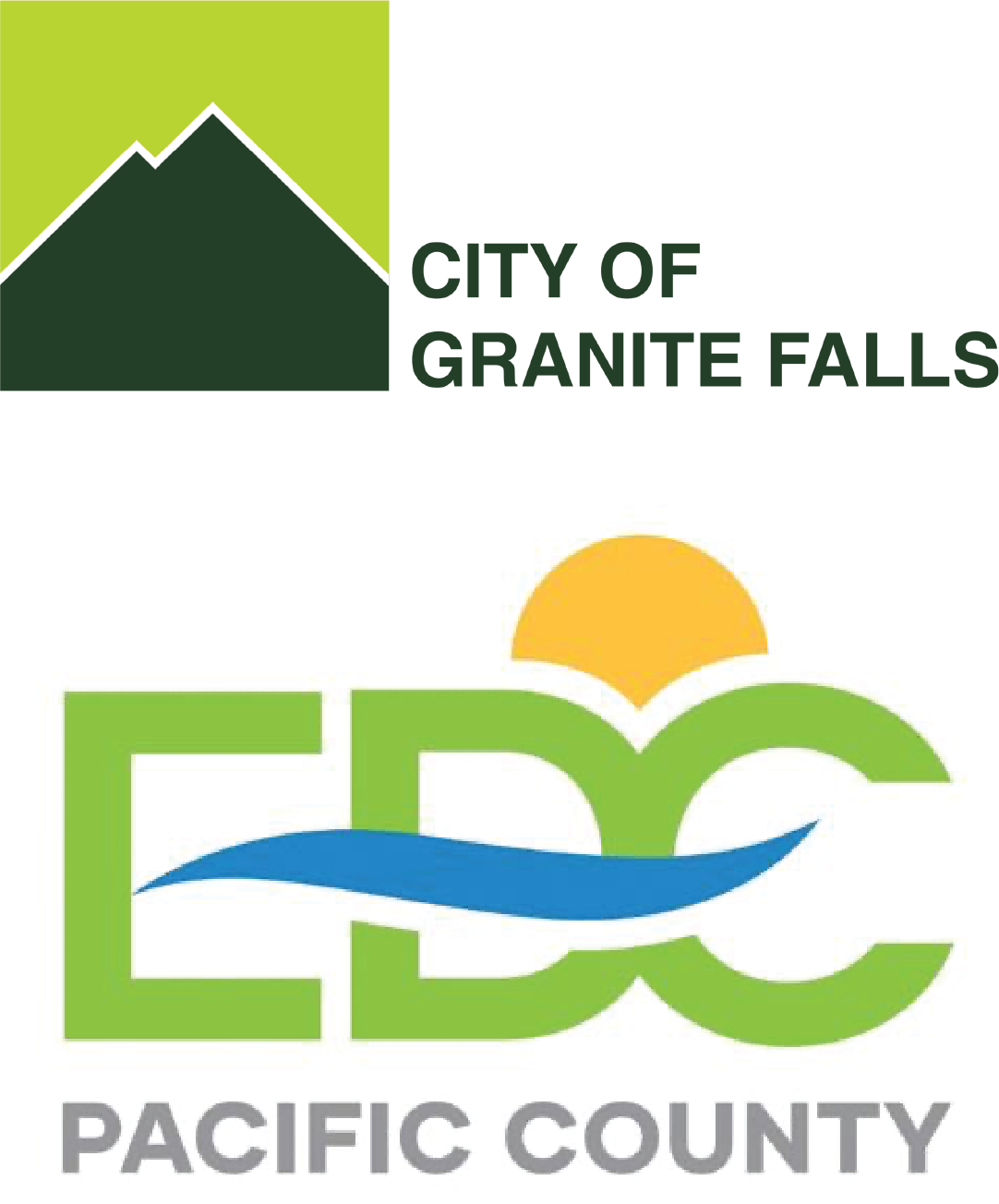May 8, 2024
UW Livable City Year’s climate work with the City of Snohomish featured at WOHESC 2024 Conference
The City of Snohomish is partnering with University of Washington urban planning graduate students to understand and prepare for the impacts of climate change. Climate modeling is predicting more frequent and intense flooding, which is significant for the city due to its location at the intersection of the Snohomish River and Pilchuck River. In addition, the City is anticipating more days of extreme heat, a serious public health concern.
After the recent passage of House Bill 1181, jurisdictions in Washington with populations greater than 6,000 are required to include a climate element in their comprehensive plans. The City of Snohomish is proactively including a new climate element in their 2024 Periodic Update, and asked graduate students in Urban Design and Planning to research the impact of climate change on the community and report their findings. The work was part of the city’s year-long partnership with the University of Washington’s Livable City Year (LCY) program, which engages UW faculty and students to tackle locally-identified projects in local communities.
“City staff saw this as a great opportunity to partner with the university for mutual benefit. The City got some excellent work using cutting edge data at a fraction of a consultant cost, and the students got to see city planning in action,” said Brooke Eidem, Planning Director for the City of Snohomish. “We had a wonderful experience with the students and UW staff on this project, and I think the community really enjoyed working with them too.”
The students began by researching the City’s initial conditions to understand the community context through a climate lens, including the City population and demographics, capital facilities and community context, land uses, and economy. Then, the team of 12 graduate students analyzed current impacts, potential risks to City assets, and climate projections for future hazards of extreme heat, drought, extreme precipitation, and flooding using data from the University of Washington Climate Impacts Group. The students also conducted a greenhouse gas assessment for the City to identify the largest sources of emissions, and an urban heat island analysis to predict locations in the city that experience the hottest temperatures during a heatwave.
To support their policy recommendations, the students reviewed various climate change policies, plans, and regulations from the county, region, and state. Using the Department of Commerce’s Climate Menu of Measures and other resources, the students created policy options for the City to include in their updated comprehensive plan.
The students also led community engagement efforts with the City’s new Climate Resilience Advisory Board (CRAB) and incorporated community feedback into their recommendations. At the culmination of the project, the team presented to the City Council in Snohomish and provided the City with a final report and supporting data. Last summer and fall, Maren Grunnet, Master of Urban Planning student, continued engagement with the CRAB and developed draft language for the Comprehensive Plan. Their work is featured on the City’s website and included in the draft of the City’s first Climate & Environment Element of the Comprehensive Plan.

Students presenting to the Climate Resilience Advisory Board in Snohomish.
Neha Chinwalla, LCY Assistant Program Manager and Master of Urban Planning Student who worked on the project, presented the team’s work at the 2024 Washington Oregon Higher Education Sustainability Conference in Bellingham, Washington in March during a session about how higher education can change the climate conversation in smaller communities.
Branden Born, LCY’s Faculty Director and associate professor in Urban Design and Planning, said of the partnership, “This is a great example of how a university can work with a local community to advance shared goals of climate action and sustainability, and how communities can help educate students about the real functions of local government.”

Part of the student team outside of the Carnegie Library in Snohomish, Washington after a presentation.
The UW’s Livable City Year program is led by faculty directors Branden Born with the Department of Urban Design and Planning and Jennifer Otten with the School of Public Health, in collaboration with UW Sustainability and Urban@UW and with foundational support from the UW College of Built Environments, UW Undergraduate Academic Affairs, and Association of Washington Cities.
Partners from the City of Snohomish include staff and leadership from the Department of Planning and Development Services, Public Works, the Department of Community Engagement and Strategic Initiatives, City Council, and the Mayor’s Office.
LCY is a member of the Educational Partners for Innovation in Communities Network (EPIC-N), a global nonprofit association of member programs that connect universities with communities to tackle local challenges.



